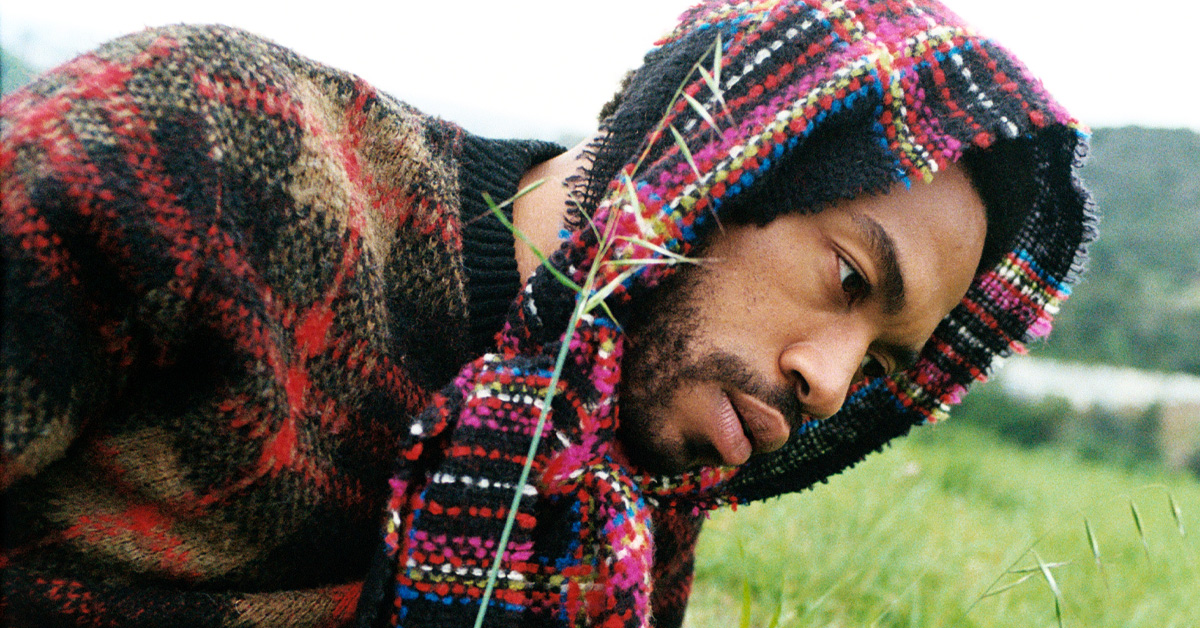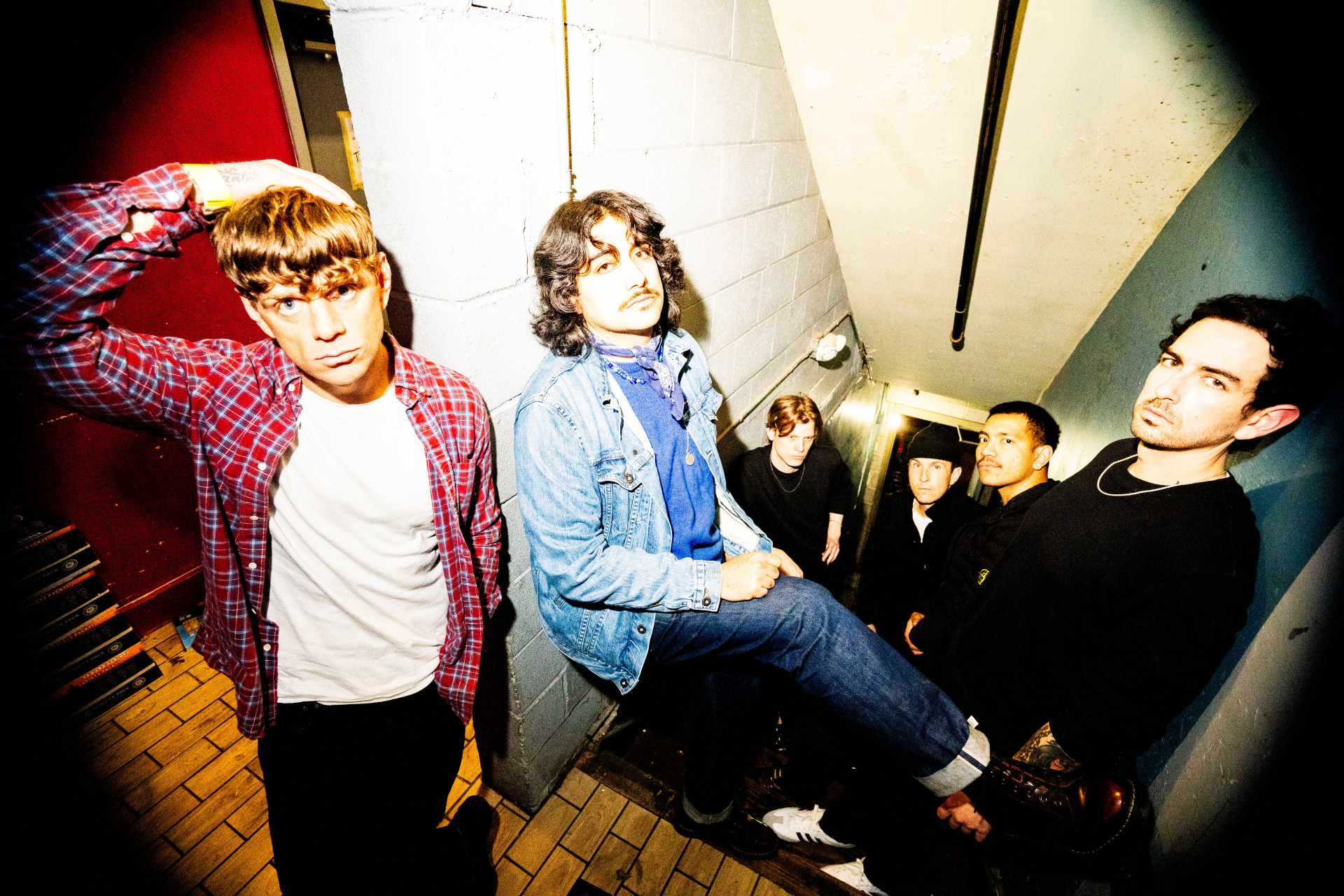Interview: Greg Anderson, Sunn O)))
 |
| Photo by Jon Kristiansen |
Greg Anderson isn’t very concerned about entertaining crowds. This is surprising coming from a musician who fronts Sunn O))), a band that strives to capture as much of the live aesthetic as possible. But Anderson and partner Stephen O’Malley would rather make air vibrate than eye contact. As the main man behind Southern Lord Records, Anderson tells us about his vision with Sunn O))) and relationships with collaborating artists on new album Monoliths and Dimensions.
Interview by Jess Blumensheid
You did a unique release package for this new record, where instead of sending promo copies on CD, you only sent out vinyl. Why is that?
The main reason we did that was to make a statement about the way that people listen to music, especially journalists. If you’re going to write about music, you should have a good stereo to listen to music on. I’ve noticed these days, people who are calling themselves journalists are people you’re handing out promos to [and] are just popping it into their computer. The computer is not the place to listen to music. The small speakers are not able to properly translate the frequencies that are on our record, especially a lot of the subs and low end on our record. A lot of times when you listen to music on your computer, you’re distracted, you’re doing work on your computer, so you’re not really paying attention to the record.
But with vinyl, you’re forced to interact with [it]. You’re physically putting it on and lifting the stylus up and putting it onto the record. You can’t just skip around as easily as with a CD. We wanted people to listen to it from start to finish. If you’re going to be writing about music and putting your opinion out there for the public to digest, you should listen to it in the way that the artist intended.
What has been the reaction so far?
It’s been really positive. We wanted keep this off of the Internet as long as possible. These days, a lot of the excitement and the surprise of the new album by an artist is ruined because you can download and hear it two months before it comes out. We had this idea of looking back when we first got into music and we were really excited about music. When the new Slayer record came out, you really didn’t have any idea of what it was about or what they were going to try next. You went to the store the day it came out. You were excited. You had never heard it before. It was a whole new experience. We wanted to try to inject some of that back into the album release process.
 |
Monoliths and Dimensions has a very different sound compared to Sunn O)))’s earlier releases. How was the creation process different for this one?
There are a lot of different players and contributors, and that is what definitely contributes to the outcome of the record. We went into the recording of this record really the same way when recording our other records, where Stephen and I are in the recording studio working on ideas and creating the music. But on this one, we did that, and then we gave that music to other collaborators to basically expand on. Like Eyvind Kang, we gave him our basic tracks and he listened to them, and he wrote music and composed a score for a string section to play and a horn section to play. It was kind of like this multi-dimensional or multi-layered process. There’s a foundation or core that Stephen and I have created, and then somebody else adds to it. Like on “Big Church,” for example, the women’s choir that was recorded — the music was actually a reaction to the guitar part that Dylan Carlson had tracked for that piece. And Dylan’s piece was based on what Stephen and I had tracked.
Other than the broad usage of different instruments, there’s quite a list of contributing artists on this album. Why is that?
There were a few basic things that we talked about, and a few things we wanted to accomplish. One was working with different instrumentation, working with some different acoustic instruments, with horns, with choirs. We actually [tossed] around the idea of working with a gospel choir. That didn’t work out. But the Viennese women’s choir is what we ended up going with and tracking. We played a lot of shows with Attila [Csihar] on vocals and also Oren Ambarchi on guitar over the last couple of years. There were a lot of things that happened during those live performances that were really special. We were hoping that we could go into the studio together and try to work on some of those ideas that we had worked on in a live setting.
This was the first time that we actually done an in-studio, in-person recording with Attila and with Oren. They’ve been on several other recordings, but it was all done through the mail. Stephen and I would create. We [would] finish a track and then send it to either Attila or Oren, and then they would add their contribution to it and then we would end up mixing it. There’s no real face-to-face contact, there’s no that sort of energy bounced back and forth between the players when it’s live because it’s done through the mail. This time, we’re going to do this together in the studio, and I think that’s part of the idea of trying to have more of a live feel to it rather than not done in person. There’s a lot of real subtle nuances that happen when you’re in a room with somebody.
Tell me about the last song, “Alice.” It has little riffs and lighter tones, like a solemn jazz tune.
The track is named after Alice Coltrane, who is an artist that Stephen and I are huge fans of. I find her music to be really inspiring. The idea of the track was to create a piece of music that had the heaviness, ominousness, and darkness of some of our other music. It was a little bit more subtle and [is] a track without massive amounts of distortion. We wanted to see if we could create a piece of music that was still dark and heavy without our usual “crutches” to fall back on.
How important is tone to what you do with Sunn O)))?
I think that for me it’s about the end result. It’s like building a house with a shitty foundation. If you have a shitty foundation, it’s probably going to fall down. If you have a good tone, the end result of the piece is going to be enriched by that. It’s hard for me to define or express tone. It’s something that’s taken me and Stephen a while to develop, find tones that we really like. I like warm, rich, big-sounding tones. On “Alice,” the guitar tone [is] not overly distorted and has more of a chiming, ringing sound to it that you would not hear on our other songs. To me, it depends on what the piece of music calls for. It can be different things. Even that realization is something that’s new for us, and I think it’s really exemplified on this record — finding different tones to create a piece of music or to express different emotions rather than just a super-loud, roaring guitar through a stack of amps.
You mentioned in a New York Times feature that wearing robes and becoming immersed in fog helps you distance yourself from the audience, allowing you to perform better. How important is it for you to
interact with your audience?
I actually try to not be concerned with how the audience is reacting to the music because that could potentially take me out of getting into it myself if I’m concerned about a reaction. It’s really challenging music, so I realize it’s not something that everyone is going to get. A lot of people, when they’re confronted with something very unfamiliar, their first reaction is to recoil and reject it. I’d rather stay focused with the music and stay in tone with the other players, and hopefully I’m able to get into a space where I like, which is to block out a lot of stuff. It can be a transcendental experience.
One of the interesting things about wearing the robes and playing with the amount of fog that we use [is] it creates this anonymity among the players. More often than not, I’ve played a show and 20 minutes later go out into the audience, and people have no idea that was me playing up there on stage, which is cool because it takes away the ego or the personality and makes it something more ominous or bigger than the person. To me, that’s what Sunn O))) is about. It’s not about Stephen and I and our egos. It’s bigger than that.
 |
| Photo by Gisele Vienne |
From my experience, people either hate or love Sunn O))). How do you feel about that?
I’m satisfied that people are reacting at all. I think I’d rather have a band that evoked an extreme reaction in people. To me, it’s really extreme and intense music, and I put a lot of myself into it. I really appreciate when people have a strong reaction, whether it’s positive or negative. Honestly, I’m not disappointed or sad when I hear that somebody hates our band. I think it’s interesting that we’ve had that impact on somebody. I realize that what we’re doing is really challenging and it’s not for everybody. It’s experimental music. That’s the nature of it. It’s not meant to go down easy.
How concerned are you about reading press?
I read some of it. The main reason I’m doing the label is I really like turning people on to the music. I like to see what their reactions are. But at the same time, with the Internet especially, it can really be detrimental. I’ve had instances where bands have been slammed in reviews, and they’ve taken it really personally and let it affect their making of the art. I think that’s terrible. With the Internet, it’s a blessing and a curse. There’s too much information and too much opinion out there, it becomes overwhelming and hard to decipher what’s credible or real and what’s not.
Is Sunn O))) still following the rubric of “the only rule is no rules”?
In some ways. As the group has progressed and more records have come out, [and] different opportunities have come our way, there is a little bit more structure. We try to keep minimal expectations and not limit [ourselves] with boundaries or rules. That makes it boring, like every other band I’ve been in with my life — same with Stephen — bands that are traditional and structured where you practice four hours a day, three days a week, working your ass off on songs and you hope to go on tour and hope to make a record. We didn’t want to fall into those traps.
Links
MySpace
Southern Lord Records
Band page at Southern Lord











